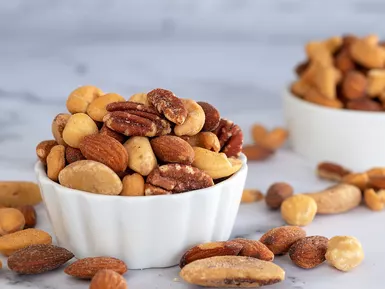
Personalized Weight Loss: 4 Strategies for Success
Losing weight can be a challenging journey, but with the right approach, it can also be incredibly rewarding. One of the most important factors in achieving successful weight loss is personalization. In this blog post, we'll explore why personalization is key to weight loss and provide you with four ways to customize your approach.
Why Personalization Matters
Weight loss is not a one-size-fits-all solution. What works for one person may not work for another, and that's why it's essential to take a personalized approach. Here are some reasons why personalization matters:
- Individual Differences: Everyone's body is unique, and factors such as genetics, metabolism, body composition, and lifestyle can all affect how you lose weight. By understanding your individual differences, you can tailor your weight loss plan to your specific needs and goals.
- Sustainability: A personalized weight loss plan is more likely to be sustainable in the long term. When you find a plan that works for you and fits your lifestyle, you're more likely to stick with it and achieve your weight loss goals.
- Motivation: A personalized weight loss plan can also be more motivating. When you see progress and results that are specific to your body and goals, you're more likely to stay motivated and committed to your weight loss journey.
4 Ways to Customize Your Approach
Now that you understand why personalization is key to weight loss, let's explore four ways to customize your approach:
- Set Realistic Goals: Setting realistic goals is an important part of any weight loss plan. When setting goals, it's important to consider your current weight, body composition, and lifestyle. Aim for a weight loss of 1-2 pounds per week, which is a healthy and sustainable rate of weight loss.
- Choose the Right Diet: There are many different diets available, and it's important to choose one that works for you and your lifestyle. Some popular diets include the Mediterranean diet, the DASH diet, and the ketogenic diet. When choosing a diet, it's important to consider your food preferences, nutritional needs, and any health conditions you may have.
- Incorporate Exercise: Exercise is an important part of any weight loss plan. It can help you burn calories, build muscle, and improve your overall health. Aim for at least 150 minutes of moderate-intensity aerobic exercise per week, such as brisk walking, cycling, or swimming. You can also incorporate strength training exercises, such as weightlifting or bodyweight exercises, to help build muscle and increase your metabolism.
- Manage Stress: Stress can have a negative impact on your weight loss efforts. When you're stressed, your body releases cortisol, a hormone that can increase your appetite and cause you to store fat. To manage stress, try relaxation techniques such as meditation, yoga, or deep breathing. You can also try engaging in activities that you enjoy, such as reading, listening to music, or spending time with friends and family.
Expert Tips for Sustainable Weight Loss
In addition to personalizing your approach, there are some expert tips that can help you achieve sustainable weight loss. Here are some tips from registered dietitians and certified personal trainers:
- Eat a Balanced Diet: A balanced diet is essential for weight loss and overall health. Make sure to include plenty of fruits, vegetables, whole grains, lean proteins, and healthy fats in your diet. Avoid processed foods, sugary drinks, and excessive amounts of saturated and trans fats.
- Control Your Portion Sizes: Portion control is an important part of weight loss. Use smaller plates, bowls, and cups to help control your portion sizes. Avoid eating directly from the package, as this can make it difficult to control how much you're eating.
- Stay Hydrated: Drinking plenty of water is essential for weight loss and overall health. Water can help you feel full, boost your metabolism, and flush out toxins from your body. Aim for at least 8 glasses of water per day.
- Get Enough Sleep: Sleep is important for weight loss and overall health. When you're sleep-deprived, your body releases hormones that can increase your appetite and cause you to store fat. Aim for 7-8 hours of sleep per night.
- Find a Support System: Losing weight can be challenging, and it's important to have a support system in place. This can include friends, family, a registered dietitian, or a certified personal trainer. Having a support system can help you stay motivated, accountable, and on track with your weight loss goals.
Success Stories
Here are some success stories from people who have achieved sustainable weight loss through personalization:
- John: John was struggling to lose weight despite trying many different diets and exercise programs. He decided to work with a registered dietitian who helped him develop a personalized weight loss plan based on his individual needs and goals. John lost 50 pounds in 6 months and has been able to maintain his weight loss for over a year.
- Sarah: Sarah was overweight and had high blood pressure and cholesterol. She decided to make a change and started working with a certified personal trainer who helped her develop a personalized exercise plan. Sarah also started following a healthy diet and lost 30 pounds in 4 months. Her blood pressure and cholesterol levels have also improved significantly.
- Tom: Tom was a busy professional who didn't have a lot of time to exercise or cook healthy meals. He decided to work with a registered dietitian who helped him develop a personalized meal plan that was easy to follow and fit his busy lifestyle. Tom lost 20 pounds in 3 months and has been able to maintain his weight loss for over a year.
FAQs
-
Q: How much weight can I expect to lose in a week? A: A healthy and sustainable rate of weight loss is 1-2 pounds per week. However, the amount of weight you lose in a week will depend on your individual circumstances, such as your starting weight, body composition, and lifestyle.
-
Q: What is the best diet for weight loss? A: There is no one-size-fits-all solution when it comes to weight loss. The best diet for weight loss is one that works for you and your lifestyle. Some popular diets include the Mediterranean diet, the DASH diet, and the ketogenic diet. When choosing a diet, it's important to consider your food preferences, nutritional needs, and any health conditions you may have.
-
Q: How often should I exercise? A: Aim for at least 150 minutes of moderate-intensity aerobic exercise per week, such as brisk walking, cycling, or swimming. You can also incorporate strength training exercises, such as weightlifting or bodyweight exercises, to help build muscle and increase your metabolism. It's important to listen to your body and not overdo it. If you're new to exercise, start slowly and gradually increase the intensity and duration of your workouts over time.
-
Q: What should I do if I hit a weight loss plateau? A: Hitting a weight loss plateau is a common challenge, but there are some things you can do to overcome it. First, make sure you're still following your personalized weight loss plan. If you've been slacking off on your diet or exercise, it may be time to get back on track. You can also try changing up your exercise routine or increasing the intensity of your workouts. Another option is to try a new diet or eating plan. Finally, make sure you're getting enough sleep and managing stress, as these factors can also affect your weight loss efforts.
Conclusion
Personalization is key to weight loss. By understanding your individual differences and tailoring your weight loss plan to your specific needs and goals, you can achieve sustainable weight loss and improve your overall health. Remember to set realistic goals, choose the right diet, incorporate exercise, manage stress, and get enough sleep. With the right approach and a little bit of effort, you can achieve your weight loss goals and live a healthier, happier life.
Call to Action
If you're ready to start your weight loss journey, we encourage you to take the first step and schedule a consultation with a registered dietitian or certified personal trainer. They can help you develop a personalized weight loss plan that works for you and your lifestyle. Remember, every journey starts with a single step, and we're here to support you every step of the way.

5 Transformative Weight-Loss Resolutions for Success

Workout Routines & Beyond: Science-Based Weight Loss

Vitamin E and Weight Loss: Unveiling the Truth

Effective Strategies to Lose Midriff Fat for Women

8 Non-Scale Victories in Your Weight-Loss Journey

Unveiling the Ornish Diet: A Path to Sustainable Weight Loss

The Power of Social Support in Weight Loss

Personalized Weight Loss: 4 Strategies for Success

Long - Term Weight Loss: Maintaining Healthy Habits

